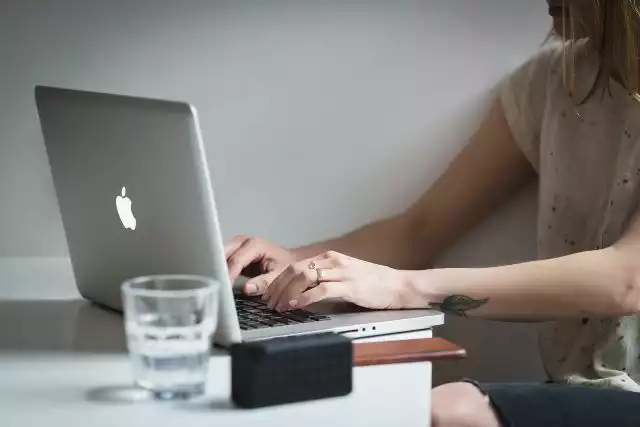Calls to ban ‘harmful pornography’ are rife. Here’s what teens actually think about porn

This paper is an outcome of the Australian Research Council (ARC) Discovery Project Adolescents' perceptions of harm from accessing online sexual content (DP 190102435).
Currently the New South Wales federal government has actually announced the initial state-led inquiry right into the “influences of dangerous porn”. The unfavorable framing of the inquiry risks revisiting old debates, instead of advancing the dispute and policies.
This paper is a result of the Australian Study Council (ARC) Exploration Project Teenagers’ assumptions of harm from accessing on-line sexual material (DP 190102435). Financing was gotten from the Australian Research Council.
Giselle is also component of a not-for-profit Relationships and Sexuality education and learning campaigning for team, Bloom-Ed, whose sights are not expressed below.
In our project, we asked 108 parents and teens from Australia, Greece, Norway and Ireland what they thought about online sexual content. We talked with 50 Australian teens (aged 11– 17) via interviews and focus groups regarding their assumptions of pornography.
Much of this debate has actually centred around the prospective damage to teens, however really few individuals have spoken with teens regarding it. As part of our research, we asked teens regarding their experiences of porn and discovered lots of have a nuanced understanding of the threats, yet likewise the advantages.
Lelia Green receives financing from the Australian Research Study Council (ARC). Financing was obtained from the Australian Research Council (2019-2023). Other co-Investigators on this ARC project are Associate Teacher Debra Dudek (ECU), Emeritus Professor Brian O’Neill (Modern Technology College, Dublin), Professor Liza Tsaliki (National and Kapodistrian College of Athens), Professor Elisabeth Staksrud (University of Oslo) and Kjartan Ólafsson (University of Iceland).
Plainly, such viewpoints are not without risk. Various other teenagers identified possibly hazardous influences of porn such as an absence of prophylactic use showed, objectification of females, no approval bargained on display, and concerns that others may replicate acts they see in porn. Twelve-year-old Levi claimed:
Preferably, creating porn proficiency can be a component of conversations concerning sex framed in more balanced ways that react to teens’ lived experiences. This is specifically important when youngsters show up to long for more specific representations and understanding of sex and can not discover such info in other places, especially for minority groups.
In our new research study, we suggest that researchers and policy-makers need to pay attention to teens, providing even more importance to their firsthand experiences over previously owned statements. Used declarations often tend to duplicate cautions teens hear from others.
Youths need to be offered with the tools to decide what is ideal for them personally. Teenagers thought education and learning can verify better than age-verification measures and constraints. Opportunities for teens to openly discuss sex and tease out these problems on their own, in a two-way discussion with individuals they trust, are critical. This implies support and training for moms and dads and educators are similarly vital in tackling these concerns efficiently.
We require porn literacy that praises media proficiency, and which does not merely describe all pornography as “unrealistic” sex. It should help youths reach informed choices concerning what they might have sought out, or been shown by their peers.
It can be stunning in the beginning and it reveals the bad side and whatever, so learning it in class would be much better. I know a lot of people would make it uncomfortably cringey but I believe it’s way better than just finding it online and simply obtaining a real shock first ’cause a minimum of you’re ready […]
While movements in the direction of teaching approval education and learning are a welcome enhancement to the sexuality and connections educational program, teens plainly call for more thorough details regarding sex than is presently supplied to them.
Discussions regarding pornography, which begin before teenage years, can help teens critically consider what they see represented in pornography. If they are prepared for what they may see online, teens will be a lot more able and resilient to critique what they consume.
Various other teens acknowledged possibly hazardous impacts of pornography such as an absence of prophylactic use displayed, objectification of ladies, no consent negotiated on display, and concerns that others may copy acts they see in pornography. In our brand-new research study, we recommend that scientists and policy-makers should listen to teenagers, offering more value to their direct experiences over previously owned declarations. Previously owned statements often tend to duplicate cautions teenagers hear from others. Teens thought education and learning might prove a lot more useful than age-verification measures and constraints. Opportunities for teenagers to openly talk about sex and tease out these issues for themselves, in a two-way conversation with people they trust, are crucial.
1 Australian Research Council2 Discovery Project Adolescents'
« NT election: promises for Indigenous people buckle under history’s weightWhat does family look like in Australia? It’s more diverse than you think »
